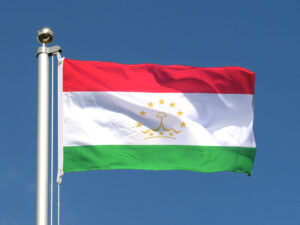The following is based on a communication written by the UN Special Rapporteur on Human Rights Defenders and other UN experts to the Government of Tajikistan on 16 February 2024. The communication remained confidential for 60 days before being made public, giving the Government time to reply. A reply was recently received and is being studied.
Since the communication was sent, the situation regarding liquidated NGOs has reportedly remained unchanged, with at least one more NGO having been liquidated.
This is a shorter version of the original communication.
BACKGROUND
Topic: the reported liquidation of over 700 non-governmental organisations (NGOs) in Tajikistan from May 2022 to August 2023.
ALLEGATIONS
There were reportedly over 700 non-governmental organisations (NGOs) dissolved in Tajikistan between May 2022 and August 2023, which is twice the number of NGOs dissolved during the previous three years combined.
NGOs forced to close include those working on early intervention on disability issues, expanding access to education, supporting victims of domestic violence, protecting the environment and promoting public access to land. Some of them had been in operation for over 20 years.
On 8 August 2023, when commenting on the dissolution of the large number of organisations, the Minister of Justice of Tajikistan stated at a press conference that most public organisations cease their activities due to financial reasons through self-liquidation. The Minister also added that the Ministry of Justice submits to the courts for liquidation only a very small number of organisations for non-compliance with the law, which had been identified during inspections.
5 NGOs from the Gorno-Badakhshan Autonomous Region (GBAO) were liquidated by court decision in the first half of 2023.
Some of those NGOs forced to self-liquidate reportedly did so following the summoning of their directors to the Ministry of Justice or local executive authorities. Once there, the directors were reportedly interviewed by security officials with the participation of relevant justice or executive body authorities. Pressure was then allegedly placed on the directors, or threats made against them, to write a statement of self-liquidation. The NGO heads were allegedly told that if they did not write such a statement, thorough inspections of their NGOs would take place, during which violations of the law would be uncovered and they could face penalties. They were also allegedly threatened with the possibility of criminal cases being opened against them and their family members for extremist activities.
Other NGOs forced to close reported that the tax authorities had initiated actions against them.
The issue regarding the liquidation of public organisations became especially acute after the unrest in the GBAO in 2022. Official statistics show that after these events, the courts ordered many public organisations to shut down while a number of other organisations self-dissolved. Although no clear official statistics are available, reportedly around 200 organisations were liquidated by court order in 2022, and over 20 NGOs had been liquidated by the Economic Court of GBAO without the participation of the leadership of these organisations. While the authorities in GBAO have denied pressuring public organisations, the great number of organisations closed by the courts is a matter of serious concern.
It has been difficult to obtain reliable statistics regarding the number of NGOs operating in the country, as well as the exact number of organisations that self-dissolved, were liquidated by a court decision, and the number of new NGOs which have since registered.
It has been reported by non-official sources that over the past four and a half years, 1,103 NGOs ceased to exist while 715 were newly registered. In 2022 alone, around 500 NGOs were liquidated, over 100 of which were by court decision. It is further reported that in GBAO, out of 300 registered organisations only around 10% are able to continue operating.
The staff of NGOs working on issues that are considered sensitive, including freedom from torture, the right to housing and compensation for requisitioned land, minority rights, freedom of belief and good governance, anti-torture initiatives, political rights, and in particular the right to free and fair elections have been reportedly subjected to threats and intimidation.
CONCERNS
In the communication, we express our great concern over the reported interference and liquidation of civil society organisations in Tajikistan, which appears to be aimed at preventing the organisations from continuing their independent and critical, legitimate human rights work, particularly documenting and reporting on human rights violations.
We are further concerned that interfering with the activities of NGOs and pressuring civil society organisations to cease their activities directly impacts the rights to freedom of peaceful assembly and association and the freedom of opinion and expression and may lead to a serious deterioration in the promotion and protection of all human rights in Tajikistan.
We further express our most serious concern that the dramatic reduction in the number of civil society organisations permitted to operate is severely limiting the ability and willingness of human rights defenders to carry out their activities in the country. This has led to self-censorship and has stymied cooperation with international actors.
We also fear that the mass liquidations will have major implications for the enjoyment of human rights of all Tajik citizens, who can no longer count on the support of many civil society organisations in cases where their rights are violated.



